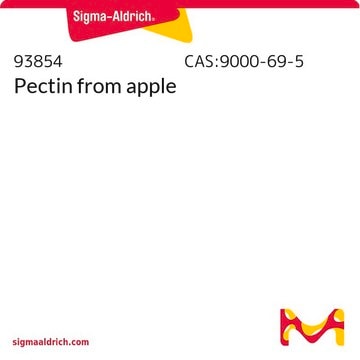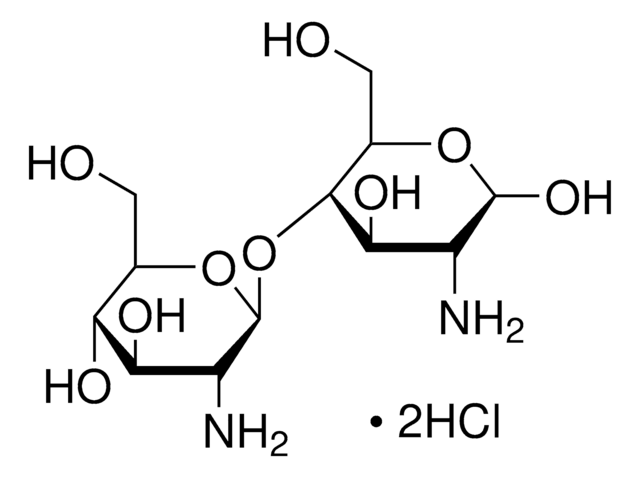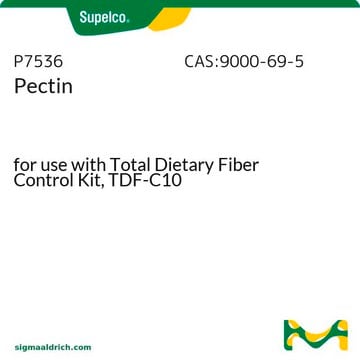T7407
Trigalacturonic acid
≥90% (HPLC)
Synonym(s):
α-D-GalA-(1→4)-α-D-GalA-(1→4)-α-D-GalA, α-D-GalA-(1→4)-α-D-GalA-(1→4)-D-GalA
About This Item
Recommended Products
Quality Level
Assay
≥90% (HPLC)
form
powder
color
white
solubility
water: 50 mg/mL, clear, colorless
storage temp.
−20°C
SMILES string
OC(C=O)C(O)C(OC1OC(C(OC2OC(C(O)C(O)C2O)C(O)=O)C(O)C1O)C(O)=O)C(O)C(O)=O
InChI
1S/C18H26O19/c19-1-2(20)3(21)10(9(27)14(28)29)34-18-8(26)6(24)11(13(37-18)16(32)33)35-17-7(25)4(22)5(23)12(36-17)15(30)31/h1-13,17-18,20-27H,(H,28,29)(H,30,31)(H,32,33)
InChI key
FMNDXLWVYMQMHF-UHFFFAOYSA-N
Looking for similar products? Visit Product Comparison Guide
Other Notes
Storage Class Code
11 - Combustible Solids
WGK
WGK 3
Flash Point(F)
Not applicable
Flash Point(C)
Not applicable
Personal Protective Equipment
Choose from one of the most recent versions:
Certificates of Analysis (COA)
Don't see the Right Version?
If you require a particular version, you can look up a specific certificate by the Lot or Batch number.
Already Own This Product?
Find documentation for the products that you have recently purchased in the Document Library.
Customers Also Viewed
Our team of scientists has experience in all areas of research including Life Science, Material Science, Chemical Synthesis, Chromatography, Analytical and many others.
Contact Technical Service











